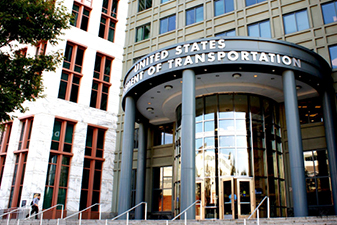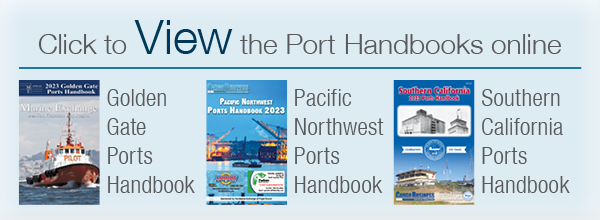|
By Cecile Entleitner, Associate, Blakey & Agnew
On February 3, Pete Buttigieg was sworn in as the 19th U.S. Secretary of Transportation following his confirmation in the Senate by a vote of 86-13. As a former presidential candidate, the first openly gay cabinet member in U.S. history, and youngest person to lead the Department of Transportation, Secretary Buttigieg has quickly become one of the most recognizable and high-profile members of the Biden Administration. This national spotlight has elevated his role as well as the Agency's in advancing the interests of President Biden's policy agenda.
During his January nomination hearing before the Senate Committee on Commerce, Science, and Transportation, Buttigieg fielded questions on a broad array of transportation policy issues. He expressed support for increased funding for major federal grant programs including Infrastructure For Rebuilding America (INFRA) and Better Utilizing Investments to Leverage Development (BUILD). Buttigieg emphasized the need for a sustainable and predictable funding mechanism to address the Highway Trust Fund's insolvency, noting a vehicle-miles-traveled fee as a potential long-term solution. When asked by Members of Congress, he also committed to further examine the impacts of the existing 12 percent federal excise tax on heavy-duty trucks and working with the Federal Motor Carrier Safety Administration to evaluate hours of service and electronic logging device regulations as well as workforce opportunities within the trucking industry for drivers under the age of 21.
Secretary Buttigieg has stressed the role of infrastructure investment in aiding economic recovery, noting that investments in transportation projects generally act as an economic multiplier. He has been a vocal supporter of President Biden's $1.9 trillion COVID relief proposal and called for its swift approval in a recent interview stating, "we've got to support as many Americans as we can, as robustly as we can and as quickly as we can. Time is of the essence." On February 8, the House Committee on Transportation and Infrastructure (T&I) announced their portion of the relief package. The proposal includes nearly $100 billion for programs within the committee's jurisdiction, including funding for the Federal Emergency Management Agency's Disaster Relief Fund, mass transit, airports, and Amtrak.
Although the COVID relief aid (as currently drafted)
|

is limited to select sectors of the transportation industry, the T&I Committee held two hearings in early February during which several additional industry stakeholders shared their policy priorities. The first hearing, titled "Protecting Transportation Workers and Passengers from COVID: Gaps in Safety, Lessons Learned, and Next Steps," included testimony by representatives of the Owner-Operator Independent Drivers Association (OOIDA) and the National League of Cities (NLC). OOIDA recommended Congress enact legislation to expand truck parking capacity, repeal the overtime exemption within the Fair Labor Standards Act for employee drivers, and refrain from increasing the minimum liability insurance requirements for motor carriers. NLC stated that the mortality rates of logistics and transportation workers increased by 28 percent due to COVID-19, second only to food and agriculture workers. To improve safety and supply chain efficiency, NLC called for Congress to prioritize essential transportation workers' access to vaccines, testing, and personal protective equipment.
The T&I Subcommittee on Coast Guard and Maritime Transportation subsequently held a hearing on the "State of the U.S. Maritime Industry: Impacts of the COVID-19 Pandemic." During the hearing, Members of Congress heard from the American Association of Port Authorities and the National Association of Waterfront Employers (NAWE), among other maritime industry stakeholders. Witnesses urged Congress to provide funding under the recently established Maritime Transportation System Emergency Relief Program, with NAWE recommending at least $3.5 billion be allocated to the program to mitigate the impacts of COVID-19. They also advocated for prioritized vaccination and frequent testing for maritime workers as well as increased investment in port and related supply chain infrastructure.
Blakey & Agnew, LLC is a public affairs and
communications consulting firm based in
Washington, DC.
|


